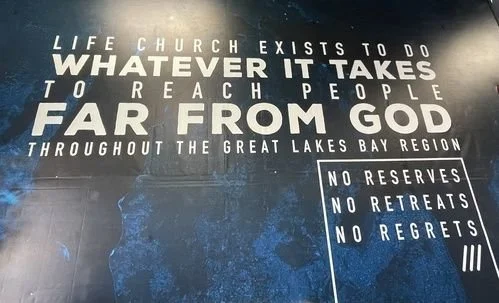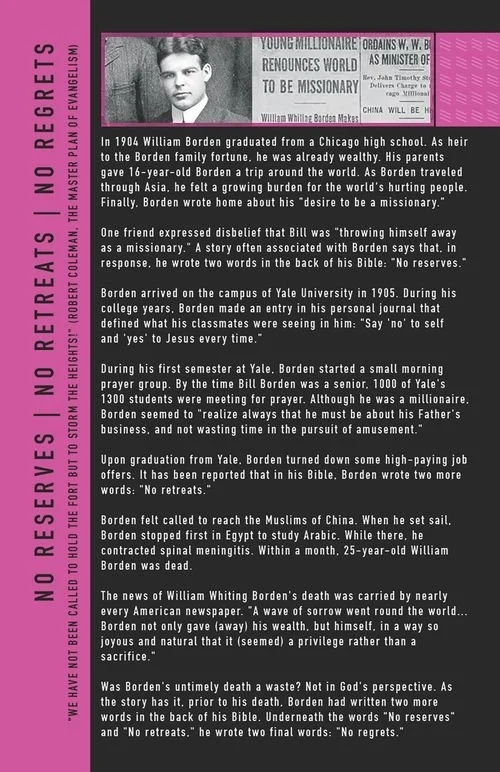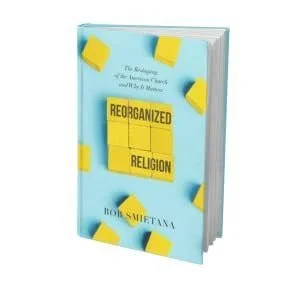SERMON ON THE DUGOUT: LIFE CHURCH HOLDING SERVICE AT DOW DIAMOND
Sunday morning's event is free and open to public
by Jon Becker, for the Midland Daily News | May 19, 2022
MIDLAND — Baseball, hot dogs, apple pie and … church? Yes, you read that right. America’s pastime is not normally associated with passionate preaching, live bands and a worship service, but that’s exactly what’s going on Sunday, May 22 at Dow Diamond.
Life Church, a Great Lakes Loons 2022 partner, is holding its weekly church service at the Loons' home stadium beginning at 11 a.m. The event is free and open to the public.
The nondenominational church likes to get creative in its approach to inspiring people to become engaged in their faith.
“We believe that faith is a journey, not a guilt trip,” said Jonathan Herron, founding pastor of the nine-year-old church. “We take our faith seriously but don’t take ourselves too seriously.”
Since Life Church is sponsoring Faith & Family Nights throughout the Loons’ 2022 season, “We thought it would be fun to actually hold a church service along the first base line,” Herron said. “We’re always brainstorming for new ideas for engaging our community at Life Church. We love bringing families together.”
Minor League Baseball is noted for its family-friendly game experiences. The Loons, who hosted their second School Kids Day of the year on Tuesday, are all in for a Sunday sermon at the ballpark.
“Faith and Fellowship Nights has been a staple at the ballpark for well over 10 years,” said Tyler Kring, the Loons’ assistant general manager of business development. “Faith is part of the journey for many of our players. We’re excited to be partnering with Life Church this season.”
The church’s house band, Kingdom Sound, will lead modern worship songs outdoors, followed by Pastor Herron sharing scripture from atop the first base dugout. The pastor also plans to interview some current Loons players about their faith journeys.
“Through this event, we hope to engage more Midland and Sanford area households as we gather a core group to launch our Midland campus this September,” Herron explained. “The plan is to become one church in two locations. We’ll have worship Sundays at 9:30 a.m. via Northwood University’s Griswold Theater, followed by worship at our Saginaw campus at 11:15 a.m.”
Michaela Yenior, of Midland, attended her first Life Church service about a year and a half ago and was quickly captivated.
“They’re on to something here,” Yenior remembers thinking. She added of Sunday's plans, “This event is really exciting and works within the scope of Life Church’s mission: reach the lost at any cost. The church is willing to think outside of the box.”
“We’re kind of known for doing things big,” said Herron, noting the church’s annual Easter Egg Helicopter Drop as proof positive that Life Church will pull out any and all stops to advance its mission.
“Pastor Herron is an incredible guy,” said Life Church parishioner Arnel Hipolito. “He’s selfless. The church has been through some ups and downs, but he’s kept going forward. He’s done a lot of outreach in the community. It’ll be interesting to hear him preach gospel from the dugout. He’s a passionate, fired-up guy, but it’s his leadership acumen that really stands out.”
Hipolito, also of Midland, plays drums and guitar in Kingdom Sounds. He played at Dow Diamond a couple of times last year and really enjoyed the experience.
“It was hot and a lot of work, but fun,” he said. “You’re outside and you’re watching baseball. Who doesn’t enjoy watching baseball?”
On another occasion, the Greater Midland Tennis Center (where Hipolito works) treated a group of its employees to a Loons game.
“It’s great family entertainment,” Hipolito said.
Sunday will mark Life Church’s first foray into serving the Lord at Dow Diamond, so Herron is unsure how many people will show. However, “According to our Facebook Page, over 300 people have indicated that they are planning on coming.”
“Hopefully, we’ll get enough people to reopen our Midland location,” Yenior said.
Life Church in Midland closed during the pandemic. This Sunday’s morning event is part of the plan to relaunch Life Church’s Midland campus this fall, Herron said.
Herron encourages people to invite neighbors and friends for church at the ballpark and to then to stick around and purchase tickets for the ballgame that follows. At 1:05 p.m. Sunday, the Loons will conclude a six-game home series against the Lansing Lugnuts.









